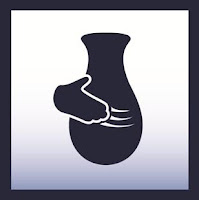a Marriage-Building Parish Building Block
We must form young people in the beliefs and virtues necessary for healthy relationships. > Read more about this building block
As part of the Marriage Building Parish initiative, the Catholic Family Institute, with permission from Four Court Press LTD, will feature excerpts from Mr. Isaac’s book each month in the bulletin and on this blog.
Character Building: A Guide for Parents and Teachers by David Isaacs
In his book, Mr. Isaacs explores twenty-four virtues we should develop to have more “self-mastery and better serve others,” abilities we all hope our children will have. Recognizing that the example we set leaves a more lasting impression on our children than the words we say, each chapter includes a description of a virtue and a series of questions that help assess how well you are living that virtue and how well you are helping to develop the virtue in children/students.
Another important virtue is Responsibility.
A responsible person is obedient to one's conscience, to authorities and ultimately to God. This obedience is not passive, but rather a positive act of commitment, a duty. We should strive to actually benefit others by performing this duty and not just do the barest minimum required. Responsible people want to "carry their weight" and help accomplish the common tasks of the family, Church and wider community. Being responsible also requires us to accept and be held accountable for the consequences of our actions/words, whether deliberate or unintentional, especially when they result from a lack of foresight. So, we must try to undo any harm, repair the damage and make every effort not to make the same mistake again. Finally, the Christian virtue of responsibility calls us to concern ourselves with others, especially our family and friends, and help them strive to act responsibly.
Answer the following questions and discuss your reflections with a spouse/friend.
Am I Responsible?
- Before committing to a project or making a decision, do I carefully consider the possible consequences/impacts for myself and for others?
- After making a decision or starting a project/action, do I take responsibility for the outcome and accept the consequences, even when it doesn't turn out well?
- Do I understand that the Christian virtue of responsibility is about being accountable to someone else and ultimately to God for my actions and their consequences, whether intentional or unintentional?
Do I Teach Others to Be Responsible?
- Do I help the children recognize when they are in fact making decisions so that they can accept responsibility for them? Do I try to establish autonomous decision making areas for the children in which they make their own decisions and learn to accept the consequences?
- Do I help the children understand to whom they are responsible and accountable and for what things?
- Do I help the children accept responsibility for the mistakes they make, even when they did not mean for them to happen?
Please share your thoughts and comments.


No comments:
Post a Comment